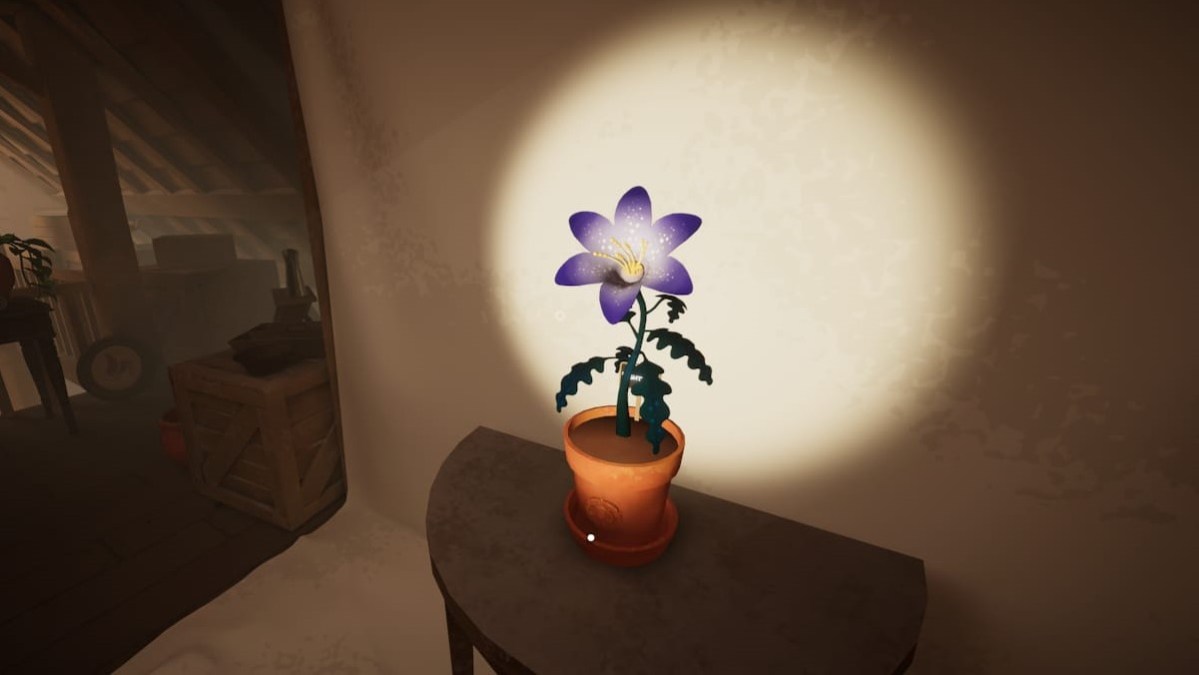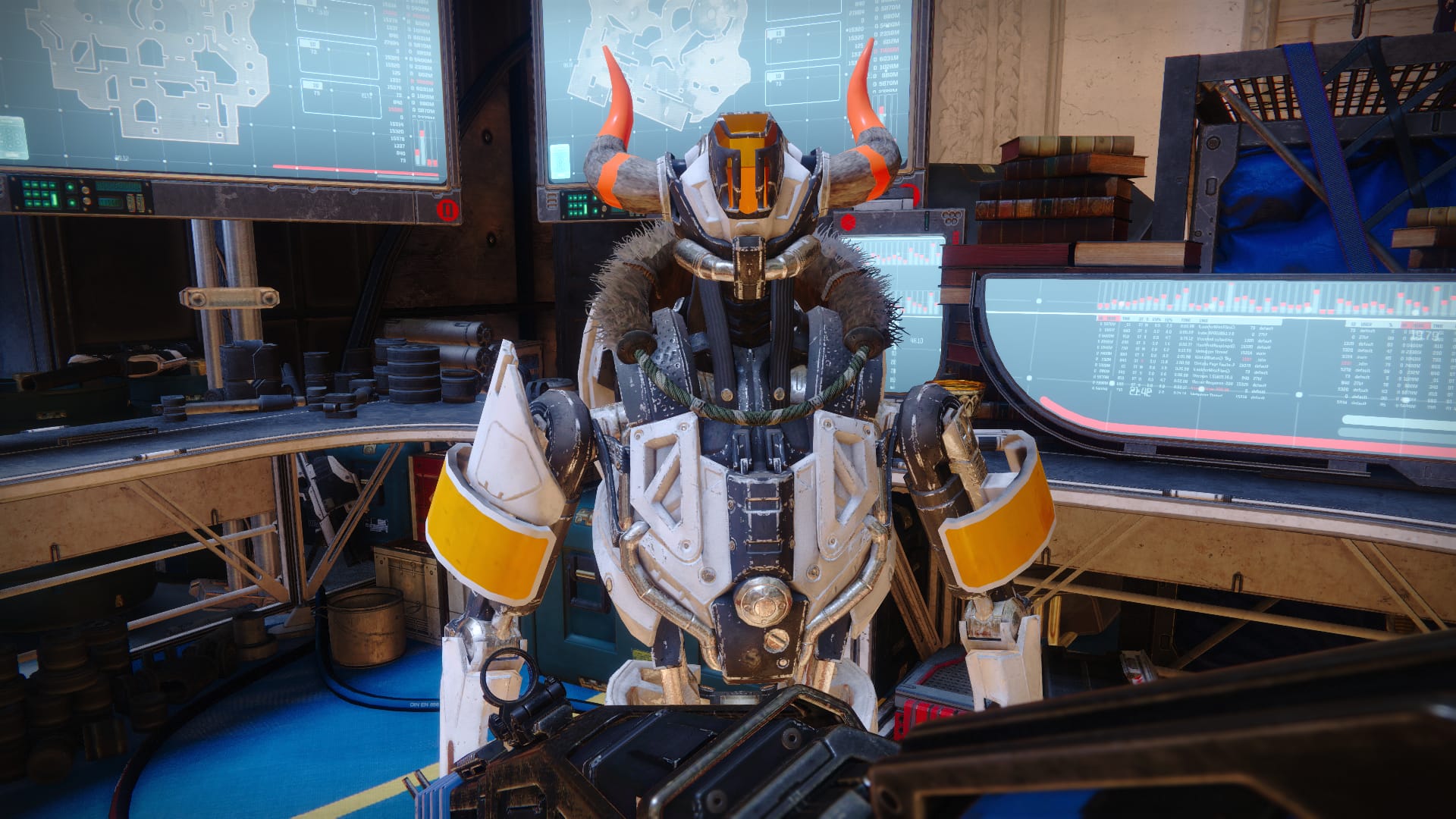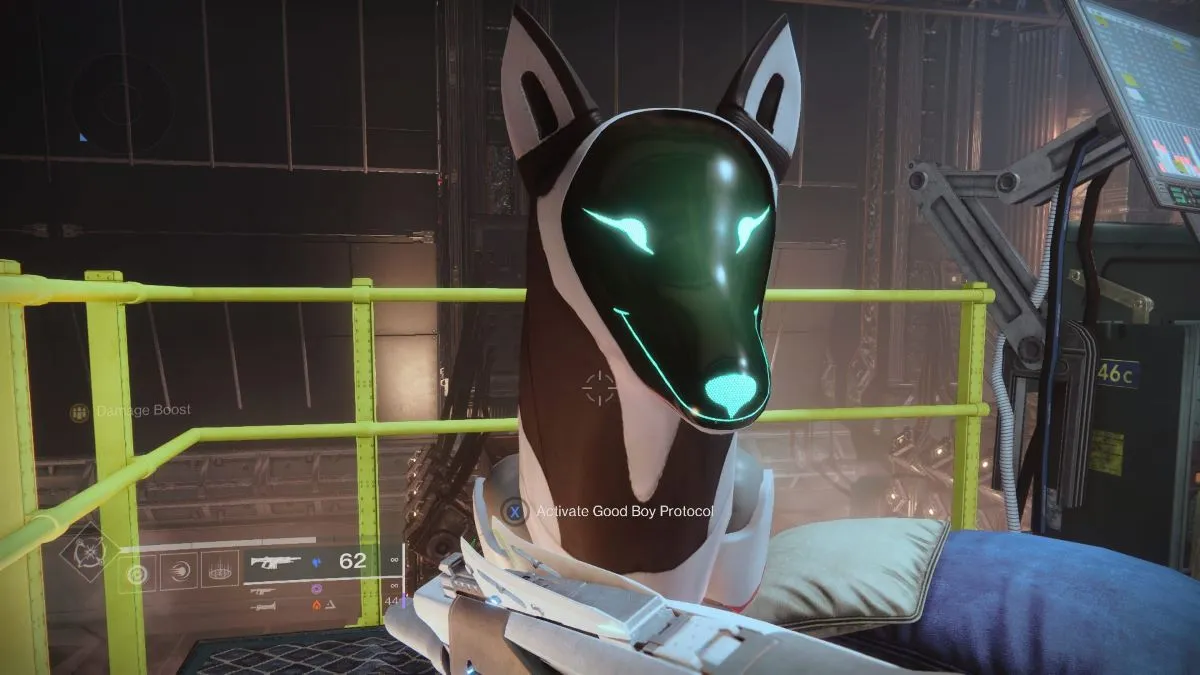Botany Manor is a game of quiet musicals, long-nurtured dreams, and legacy. And by getting the Nightfall to Bloom in Botany Manor, we achieve something great narratively.
How to Solve the Nightfall Puzzle in Botany Manor
The Nightfall is a flower that will have you running all over the house. But if you want the quick and easy solution on how to get the Nightfall to bloom in Botany Manor, you just need to put the Nightfall in front of the projector with the colors blue, yellow, orange, and red displayed. If you’d like a more in-depth solution, read on.
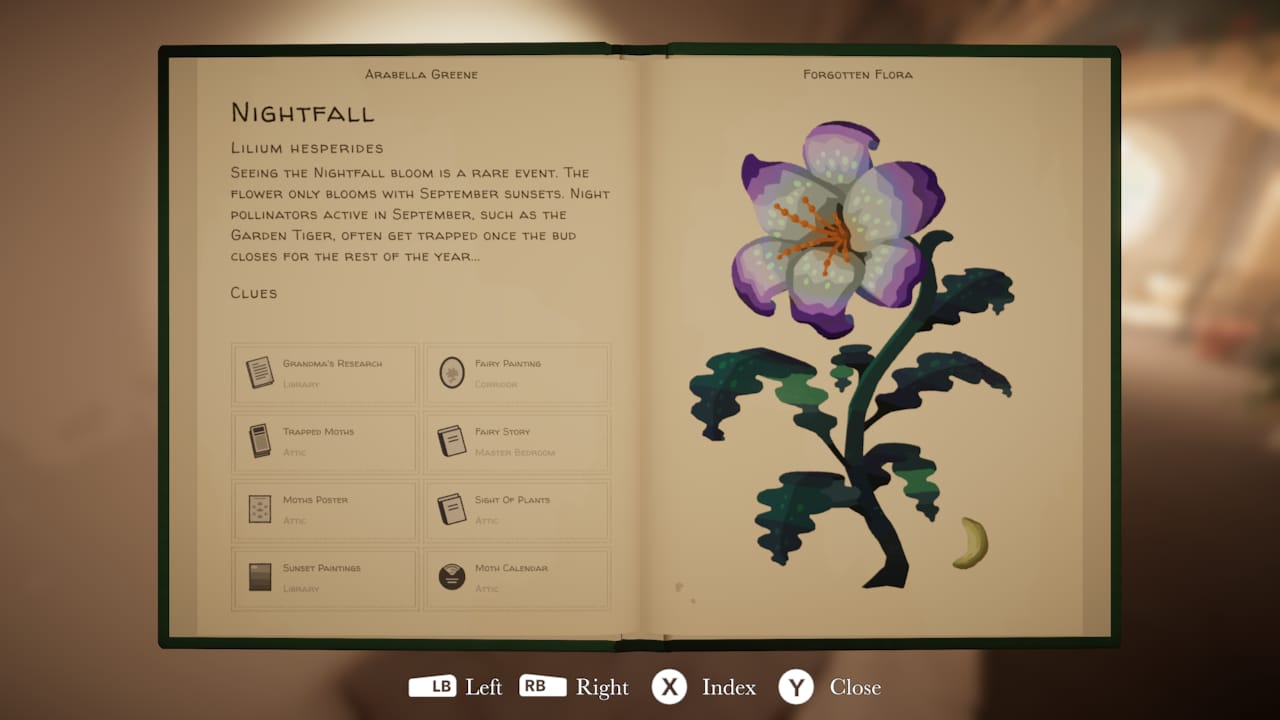
First, we’ll need to gather seven clues to solve the Nightfall’s mystery:
- Clue 1: Grandma’s Research – Found in the library behind the secret door on the bookstand.
- Clue 2: Sunset Paintings – Found in the library behind the secret door on the walls.
- Clue 3: Fairy Painting – Found in the corridor on the wall outside of the attic.
- Clue 4: Fairy Story – Found on the desk in the master bedroom.
- Clue 5: Trapped Moths – Found on the first floor of the attic on a crate.
- Clue 6: Moths Poster – Found on the wall immediately upon entering the attic.
- Clue 7: Moth Calendar – Located on the crate in front of the Moths Poster.
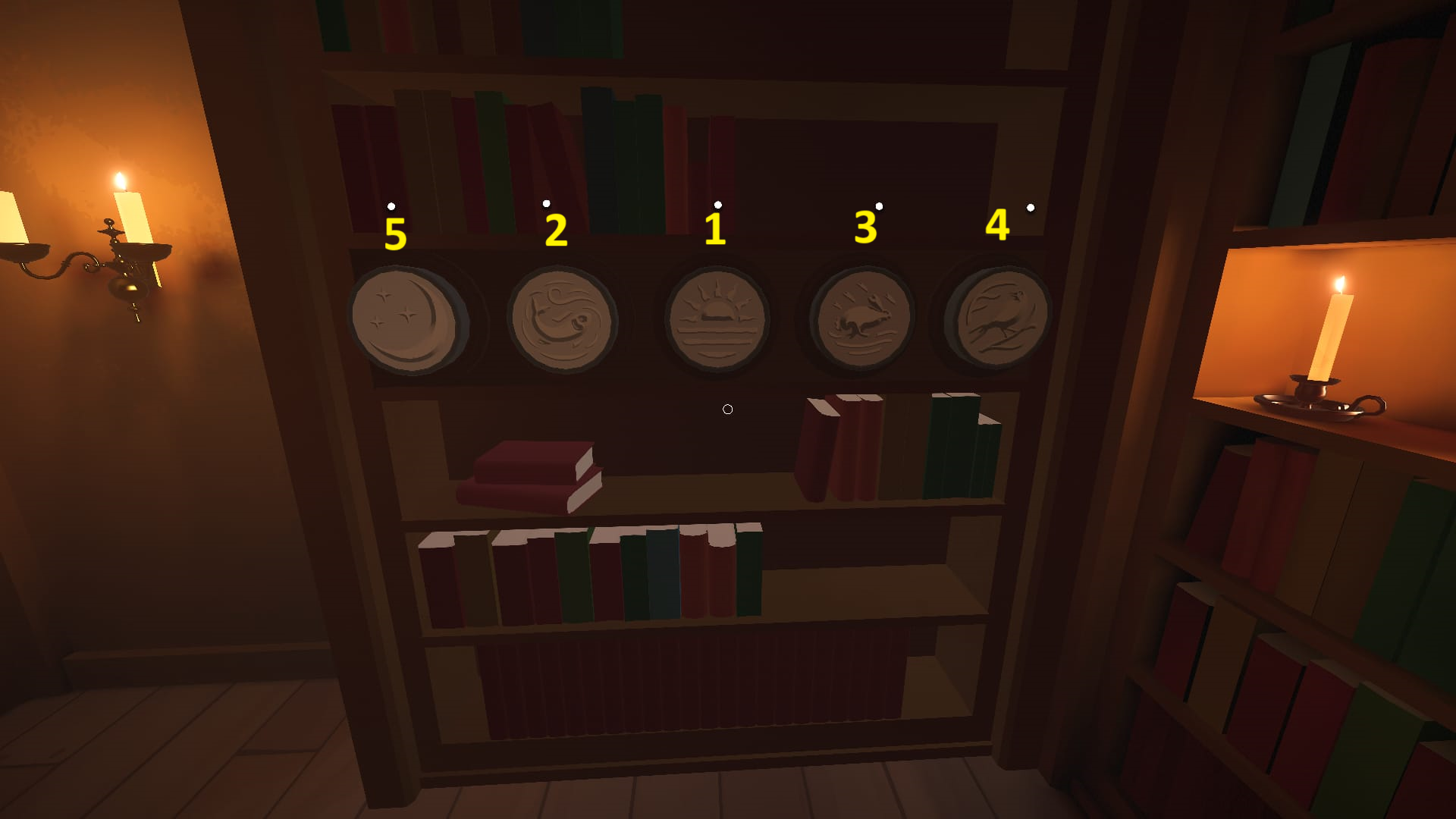
To really unravel the Nightfall, you’ll need to solve the Sapphire Gloom’s blooming first. This will require you to enter the library and interact with the wall on the left. This wall features five buttons, which you’ll need to press in the correct order. That order is:
- Sun.
- Fish.
- Hare.
- Crow.
- Moon.

Once you’ve punched in this code, the door will open, revealing a secret workshop. This workshop will contain the keys to the study and, for our purposes, two important things: the Nightfall seeds and the Sunset Paintings. Memorize the September painting’s colors. Or don’t! I’ll tell you the answer either way.
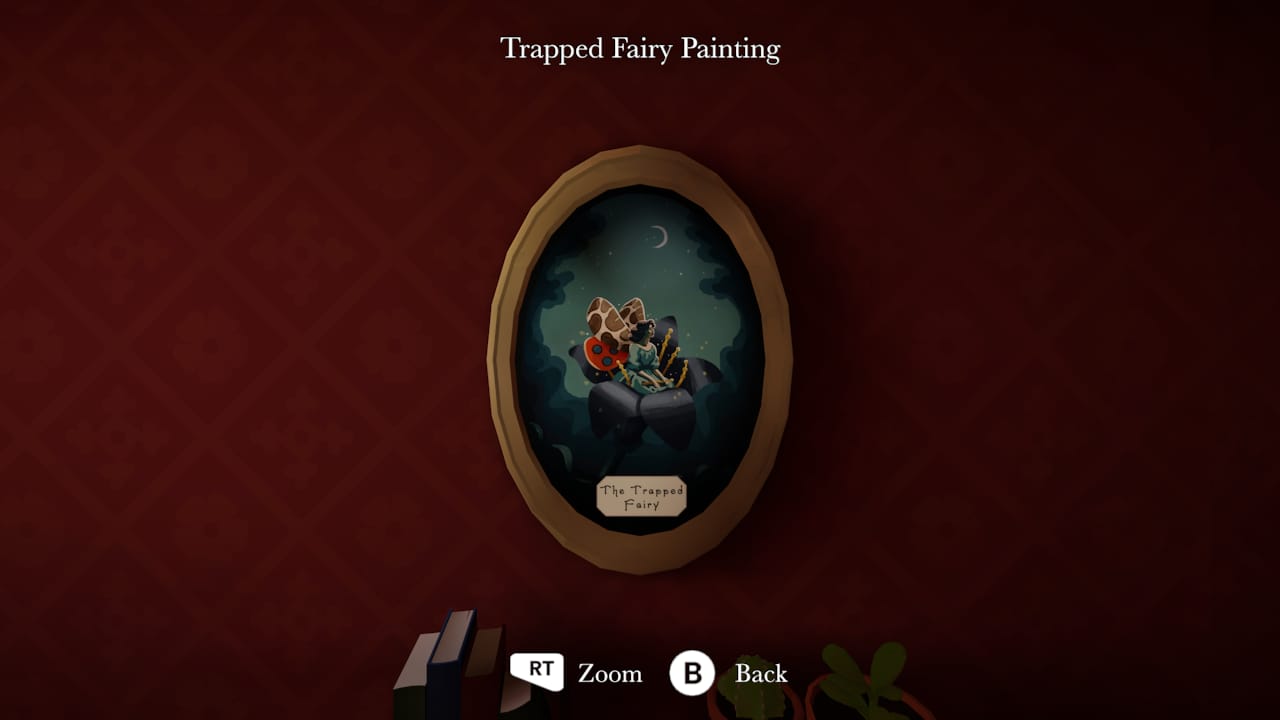
When you’ve gotten the Sapphire Gloom to bloom, you can then access the other wing of the second floor. Enter the corridor and look at the wall. There, you’ll see a clue 3, the Fairy Painting. The fairy in the picture is sitting on a Nightfall flower, and the colors on its wings are very important.
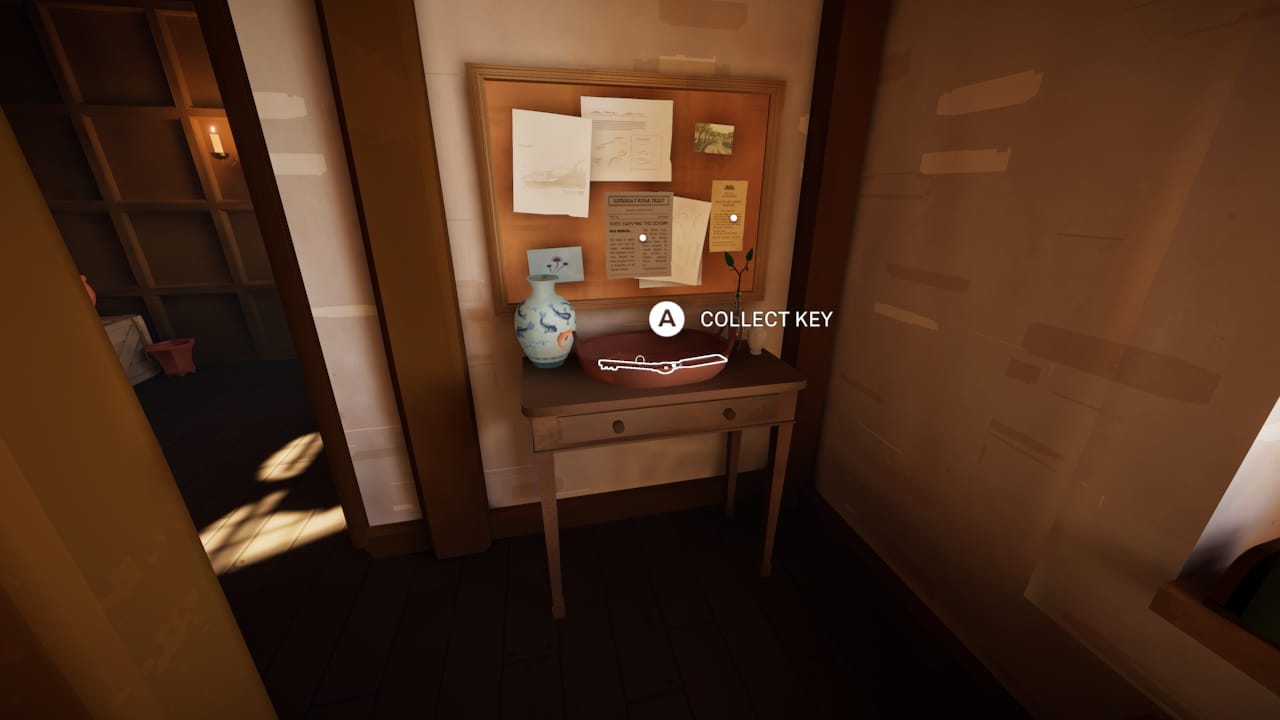
Next, head into the master bedroom and read clue 4 to learn about a fairy that stayed too long in a flower and then was trapped in it. Grim! Leave the bedroom and use the door beside the seed station. This will lead you into the bell tower, where you can find the attic key in a bowl. But don’t go to the attic just yet! Instead, take the time to pot the Nightfall and take it with you.
Related: How to Grow the Oscilette in Botany Manor
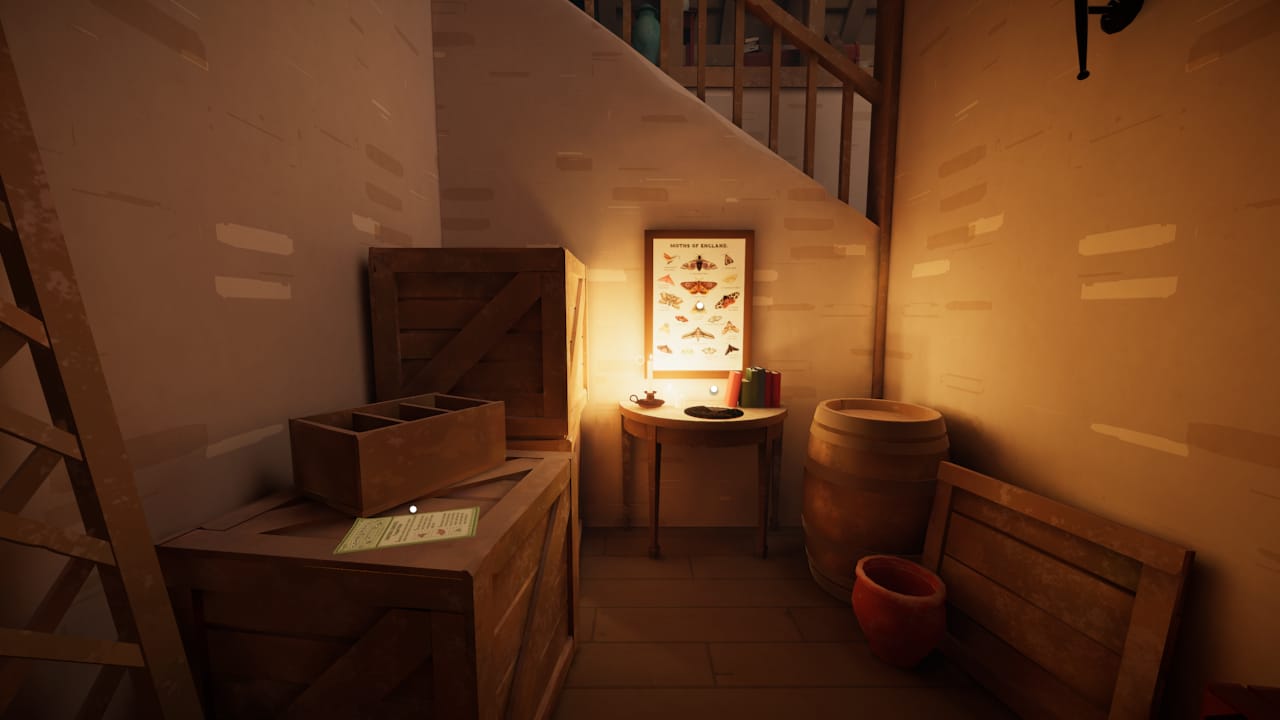
With the attic key in hand, unlock the attic door near the fairy painting. Once you do, don’t go up. There are three clues immediately in front of you. On the crate to your left is a piece of paper that will tell you that moths can get trapped in flowers that close once morning comes. Sounds like the fairy story, doesn’t it? Next, examine the poster on the wall. Look closely, and you’ll find that the Garden Tiger Moth looks just like the fairy on the painting in the corridor! Curiouser and curiouser. Next, examine the Moth Calendar and find the Garden Tiger Moth. It seems that it only appears in September.

With all this in mind, head upstairs with your Nightfall pot and place it in front of the projector. Open the suitcase on the table to reveal several closer slides. We’ll want to pick up and place the slides in this order:
- Blue.
- Yellow.
- Orange.
- Red.
Blue should be placed closest to the projector, and red should be placed the farthest from the projector. Once you’ve done this correctly, hit the button on the projector, and your flower will bloom. Don’t let moths get anywhere near it.
And while you’re in the attic, be sure to grab the Brook Chalice seeds and the rusty pig figurine before you go! You’ll need both.

